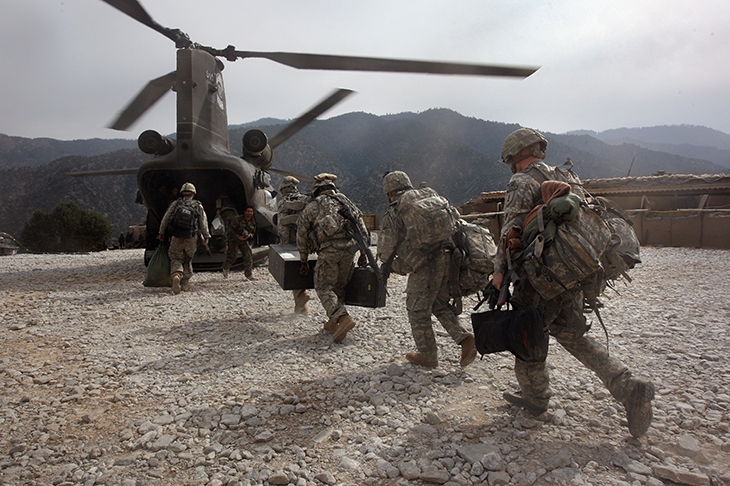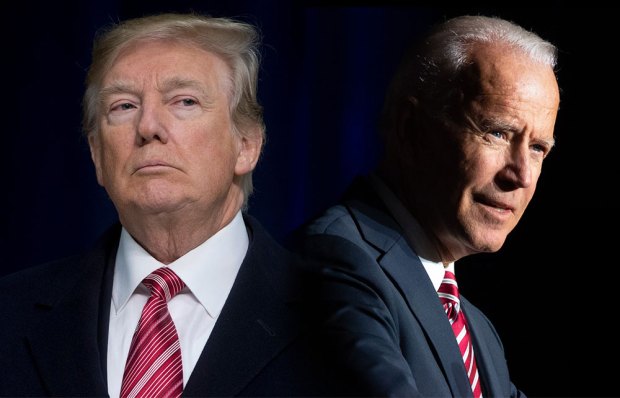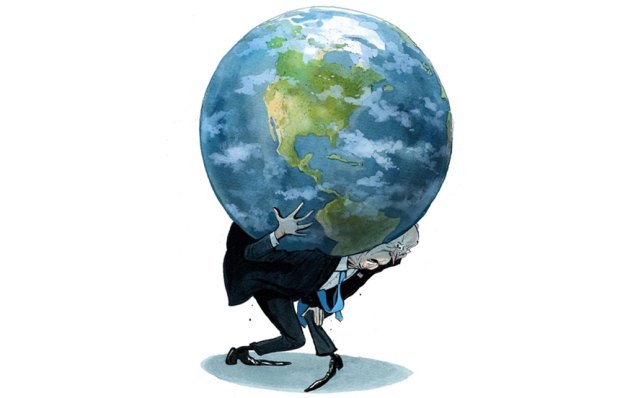It gets lost in the many creative purposes successive American administrations invented to justify remaining in Afghanistan, but the primary goal of the original aerial assault in 2001 was clear and primitive: revenge. Not always a dish best served cold. That military operation was an attempt to satisfy public thirst for payback, and also for agency. 9/11 made the country feel powerless. Given today’s glorification of victimhood, it’s worth remembering that when Americans were granted victimhood en masse, they didn’t care for it.
If in the eating revenge is often thin gruel, so also is the experience of being proved right. I opposed the extended occupations of both Afghanistan and Iraq. I’m no foreign policy expert, but so far my rule of thumb for foreign interventions — ‘Once a hell-hole, always a hell-hole’ — has held up. In scheduling a scandalously shambolic withdrawal to coincide with the 20th anniversary of the World Trade Center attacks, Joe Biden has managed not to reverse the humiliation of 9/11, but to repeat it. Our would-be vengeance has merely punished the US a second time. We hear from all quarters now that the reputation of the US has been terminally trashed, and that from here on in the inclination of future administrations to bully into the affairs of other countries will be greatly diminished.
That should make me happy. Since the second world war, most US foreign military interventions have been pointless or worse. Ironically, the one act of poking the American nose into other people’s business that I regard as roundly productive is the one that got so much stick at the time: Bush Senior’s first Gulf War. He was given all manner of grief for not going all the way and invading Iraq — which I never coveted for the 51st state. Liberating Kuwait and going home prevented mission creep into doomed ‘nation-building’ while still sending a stern international message: you can’t take other children’s toys.
None of us wants to live in a world in which sovereign territory can be taken with impunity, and in this sense the first Gulf War drew a hard line in the sand that shored up international order for everyone. By contrast, most of the USA’s other military meddling during my lifetime has not palpably benefited the American people, although I’m sorry to say that I doubt this is the test to which decisions in the Pentagon have ever been subjected.
Imagining that it must cloak its -rationale in the guise of a loftier morality, the West in general has grown embarrassed by the naked pursuit of self-interest — and you’d think that only ferocious self–interest would conceivably motivate lavishing vast resources and thousands of young lives on these dubious adventures. I’d have frankly been heartened if the US really had invaded Iraq in order to confiscate the oil fields. That would have been rational. We’d have got something out of our $2 trillion. But no. We handed the oil fields back. We’ve no more to show for eight years in that sand trap than we have to show for 20 years in the other sand trap — although, to be fair, by helping vastly to increase the acreage devoted to poppy cultivation, which the Taliban had discouraged, the US did manage to finagle for its domestic addicts a steep discount on heroin.
In my quasi-isolationism, I’ve loads of company. In and outside the US, plenty of folks agree that these bungling intrusions into other countries have mostly given the American military something to do, the better to justify a defence budget that benefits a hugely profitable industry of sheer destruction; that policy wonks in DC do not know what they’re doing; and that the normal response to foreign troops in one’s streets is resentment, not gratitude. American taxpayers have reason to be irked by getting stuck with the bill for protecting the whole world, when any day now the rust–encrusted Brooklyn-Queens Expressway could collapse from the scratching of a single mischievous squirrel.
Because the case for defunding the world’s policeman is overwhelming, that’s not what interests me. What interests me is my ambivalence. I may have little faith in American governments to act wisely and justly. But I have no faith in international bodies. In the main, Nato is the United States. UN peacekeeping forces are a farce. So if the US is truly cowed (if not exactly humbled) and determined for the foreseeable to shelter in place, we’re looking at a future in which malefactors can get away with anything. Why, malefactors may think they can get away with anything already. Putin seized Crimea, and what happened? A few sanctions, i.e. squat. What’s to stop the guy from going for Ukraine next? Or Estonia? After the debacle of Afghanistan, would the US drive a modern-day Saddam Hussein from Kuwait?
I’m most leery of a world in which China is no longer afraid of the United States. China’s reneging on ‘one party, two systems’ in Hong Kong has cost the country a few chiding comment pieces in western broadsheets. So it’s all too easy to envision President Xi enforcing his claim to the entire South China Sea (much like a UK claim to the Atlantic) with navy gunboats. It’s all too easy to envision Xi finally invading Taiwan, after which an American president gives a stern, disappointed speech. Quislings in the western press promote the view that Taiwan is part of China after all, rather than a thriving independent democracy taken over by brutal military force that no one cares to oppose. China learns it can take other children’s toys.
If China moves on Taiwan, maybe it’s a toss-up which scenario is grimmer, the US doing something or not doing something. But Biden is unlikely ever to call out Beijing on Covid’s highly probable origin in that Wuhan lab, if only because he wouldn’t be able to follow up the damning accusation with a meaningful punishment. The ‘world’s policeman’ is now tooting about in little anti-hate-crime cars covered in rainbow colours.
Got something to add? Join the discussion and comment below.
Get 10 issues for just $10
Subscribe to The Spectator Australia today for the next 10 magazine issues, plus full online access, for just $10.
You might disagree with half of it, but you’ll enjoy reading all of it. Try your first month for free, then just $2 a week for the remainder of your first year.















Comments
Don't miss out
Join the conversation with other Spectator Australia readers. Subscribe to leave a comment.
SUBSCRIBEAlready a subscriber? Log in